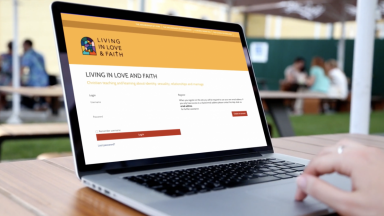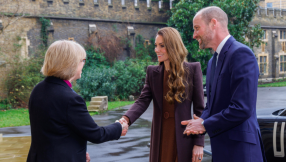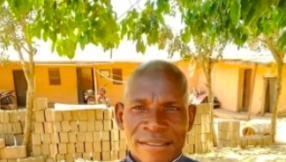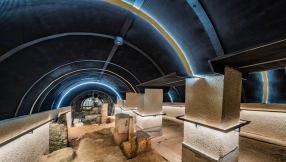
Newly elected members of the Church of England's General Synod should "listen especially" to the "lament, fear and pain of LGBTQI+ people", say the bishops leading the Living in Love and Faith (LLF) consultation on marriage, sexuality and gender identity.
Synod members got the order in an "LLF Guide" sent out with papers for the first meeting in their new five-year term taking place on November 16 and 17 at Church House Westminster.
It will be the first time the CofE's legislative body has met in person since the start of the Covid pandemic.
The recent elections attracted a record number of candidates, with 956 standing for 400 places for the Houses of Clergy and Laity combined. A majority of those elected - 60 per cent - are new members.
The LLF consultation across the Church, launched in November last year, is led by its Next Steps Group of nine bishops. It is chaired by the Bishop of London, Sarah Mullally, and includes the conservative evangelical Bishop of Maidstone, Rod Thomas.
The group has met 14 times since June 2020.
"It has produced the overarching strategy for engagement and listening across dioceses, and a timeframe for the discernment and decision-making phases of the process," the LLF guide says.
One section in the guide is headed "What steps can the LLF Next Steps Group and all of us in the wider church take to help make your most hopeful aspirations a reality?".
It tells Synod members to "listen to the lament and fear and pain of people, especially, LGBTQI+ people"; "move from a less adversarial to a more conversational listening approach that involves genuine encounter"; and "find ways of listening to all the voices, not just the loudest".
The guide also includes a doctrinal claim that the LLF resources "signal the belief that the Holy Spirit speaks through Scripture, tradition and the whole people of God as together we discern what it is that God is saying to the Church today about identity, sexuality, relationships and marriage – and perhaps other aspects of our life and witness".
The CofE's official statement of its doctrine in Canon A5 presents the Bible as the supreme authority in matters of Christian belief and practice above church tradition and human experience.
"The doctrine of the Church of England is grounded in the Holy Scriptures, and in such teachings of the ancient Fathers and Councils of the Church as are agreeable to the said Scriptures," the Canon says.
Over 11,000 people have registered on the LLF learning hub, the guide says.
The hub includes a five-session video course, podcasts and films, and a large online library of resources on identity, sexuality, relationships and marriage.
New Synod members will have opportunities to engage with members of the Next Steps Group at a presentation by the Bishop of London in the Synod Chamber on 15 November and at an evening reception the following day.
Two motions are also due be debated at the upcoming Synod on addressing the "wealth gap" nationally and within the Church. The Bishop of Sheffield, Pete Wilcox, is moving a motion that "this Synod request the Archbishops' Council to develop legislative proposals, to be brought to a future Group of Sessions, to give dioceses more freedom to be generous with their historic wealth to other dioceses in the Church of England, and in this way enable a more equitable sharing of this wealth".
A motion from Rev Canon Paul Cartwright of Leeds Diocese proposes that "this Synod call on Her Majesty's Government (and all political parties) to adopt an explicit policy of reducing the wealth gap between the rich and the poor and the disadvantages that flow from it".













